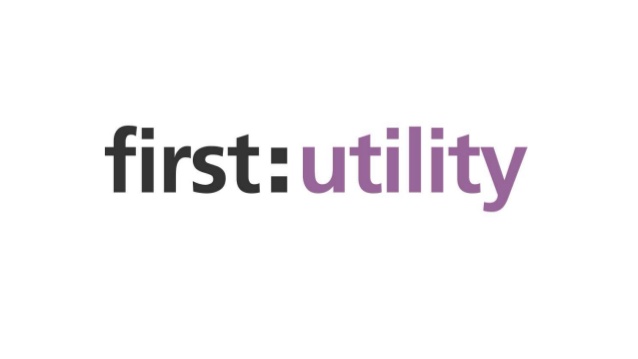
At Sirius, we understand that navigating the world of technology can be overwhelming. That's why we're dedicated to providing clear, honest answers to your most pressing questions. Today, we're diving into Linux, a powerful Open Source operating system that's transforming businesses across industries.
"What Exactly Is Linux, and Why Should I Care?"
Linux is an Open Source operating system, similar to Windows or macOS, but with significant differences. It's known for its stability, security, and flexibility. Unlike proprietary systems, Linux's source code is freely available, allowing for customization and community-driven development.
Why should you care? Because Linux powers a vast portion of the internet, cloud infrastructure, and enterprise servers. It's a robust and cost-effective alternative to traditional operating systems, offering greater control and adaptability. If the idea of maximizing system efficiency and reducing overhead resonates, you'll want to explore Linux further. Sirius can help you assess if a Linux migration is right for your business.
"Is Linux Really Free? What Are the Costs Involved?"
While the core Linux kernel is free, the overall cost depends on your needs. You can download and install various Linux distributions (like Ubuntu, CentOS, or Red Hat) without licensing fees. However, consider these potential costs:
- Implementation and Setup: Depending on your technical expertise, you might need professional assistance for installation and configuration.
- Support and Maintenance: While community support is abundant, businesses often require dedicated support for critical systems.
- Training: If your team is unfamiliar with Linux, training may be necessary.
- Commercial Distributions: Companies like Red Hat offer commercial Linux distributions with enterprise-grade support and features, which come at a cost.
The key takeaway? Linux offers significant cost savings compared to proprietary systems, but professional implementation and support might be necessary. Navigating these costs effectively is where Sirius's expertise shines. We can provide a comprehensive cost analysis and tailor a solution to your budget.
"What Are the Advantages of Using Linux in a Business Environment?"
Linux offers several compelling advantages:
- Stability and Reliability: Linux servers are renowned for their uptime and stability, minimizing downtime and maximizing productivity.
- Security: Linux's Open Source nature allows for rapid vulnerability detection and patching, making it highly secure.
- Flexibility and Customization: Linux can be tailored to specific hardware and software requirements, optimizing performance and resource utilization.
- Cost-Effectiveness: Reduced licensing fees and hardware requirements translate to significant cost savings.
- Open Source Ecosystem: Access to a vast library of Open Source software and tools.
- Scalability: Linux is highly scalable, making it ideal for growing businesses and demanding workloads. Maximizing these advantages requires strategic implementation. Sirius can provide the planning and execution needed to fully leverage Linux's power.
"What Are the Potential Challenges of Implementing Linux?"
While the benefits are substantial, it's essential to acknowledge potential challenges:
- Learning Curve: Linux's command-line interface can be intimidating for users accustomed to graphical interfaces.
- Hardware Compatibility: While Linux supports a wide range of hardware, some niche devices might require specific drivers.
- Software Compatibility: Not all proprietary software is compatible with Linux.
- Internal skill sets: your employees may not have the skillset needed to implement and maintain linux systems. Overcoming these challenges is where Sirius's experienced team can provide invaluable support. We'll ensure a smooth transition and minimize disruptions.
"What Are the Common Use Cases for Linux in Business?"
Linux is incredibly versatile and finds application in various business scenarios. Some common use cases include:
- Servers: Linux is the backbone of many web servers, database servers, and file servers due to its stability and security.
- Cloud Computing: Major cloud providers like AWS, Azure, and Google Cloud heavily rely on Linux for their infrastructure.
- Embedded Systems: Linux powers a wide range of embedded systems, from routers and network devices to industrial automation equipment.
- Supercomputing: Many of the world's fastest supercomputers run on Linux due to its performance and scalability.
- Software Development: Linux provides a robust environment for software development with its rich set of tools and libraries.
"How Do We Ensure Security When Using Linux?"
Ensuring security with Linux involves several key practices:
- Regular Updates: Keep the system and software packages updated with the latest security patches.
- Firewall Configuration: Configure a firewall to restrict network access and prevent unauthorized connections.
- User Management: Implement strong password policies and limit user privileges to only what is necessary.
- Security Auditing: Regularly audit system logs and security events to detect potential threats.
- Intrusion Detection: Utilize intrusion detection systems to monitor network traffic and identify malicious activity.
- Encryption: Encrypt sensitive data both at rest and in transit to protect it from unauthorized access.
"Which Linux Distribution Should We Choose?"
Choosing the right Linux distribution depends on your business needs and technical expertise. Here are a few popular options:
- Ubuntu: User-friendly and widely supported, ideal for desktops and servers.
- AlmaLinux: A free, open-source enterprise Linux distribution focused on long-term stability and binary compatibility with RHEL.
- Red Hat Enterprise Linux (RHEL): A commercial distribution with enterprise-grade support, suitable for critical systems.
- Debian: Known for its stability and vast package repository, suitable for various purposes.
- SUSE Linux Enterprise Server (SLES): Another commercial distribution with strong enterprise features.
Each distribution has its own strengths and weaknesses, so it's important to research and select one that aligns with your specific requirements.
"How Do We Train Our Team on Linux?"
Training is essential for successful Linux adoption. Consider these options:
- Online Courses: Numerous online platforms offer Linux training courses.
- In-House Training: Hire a Linux expert to conduct on-site training.
- Community Resources: Leverage online forums, documentation, and tutorials.
- Professional Certifications: Encourage your team to pursue Linux certifications. Sirius can provide tailored training programs to ensure your team is proficient in Linux, maximizing your return on investment.
"How Do We Integrate Linux with Our Existing Systems?"
Integration depends on your existing infrastructure. Careful planning and testing are crucial.
- Virtualization: Use virtualization technologies to run Linux alongside existing operating systems.
- API Integration: Leverage APIs to connect Linux applications with existing systems.
- Middleware: Implement middleware to facilitate communication between different systems. Seamless integration is critical. Sirius has the expertise to ensure your Linux environment works harmoniously with your current infrastructure.
"Is Linux the Right Choice for My Business?"
The answer depends on your specific needs and goals. If you prioritize stability, security, cost-effectiveness, and flexibility, Linux is a strong contender. At Sirius, we're committed to helping you make informed decisions about your technology. If you're ready to explore the possibilities of Linux, Sirius is here to guide you every step of the way. Contact us today to discuss how we can help you harness the power of Linux for your business.
















































